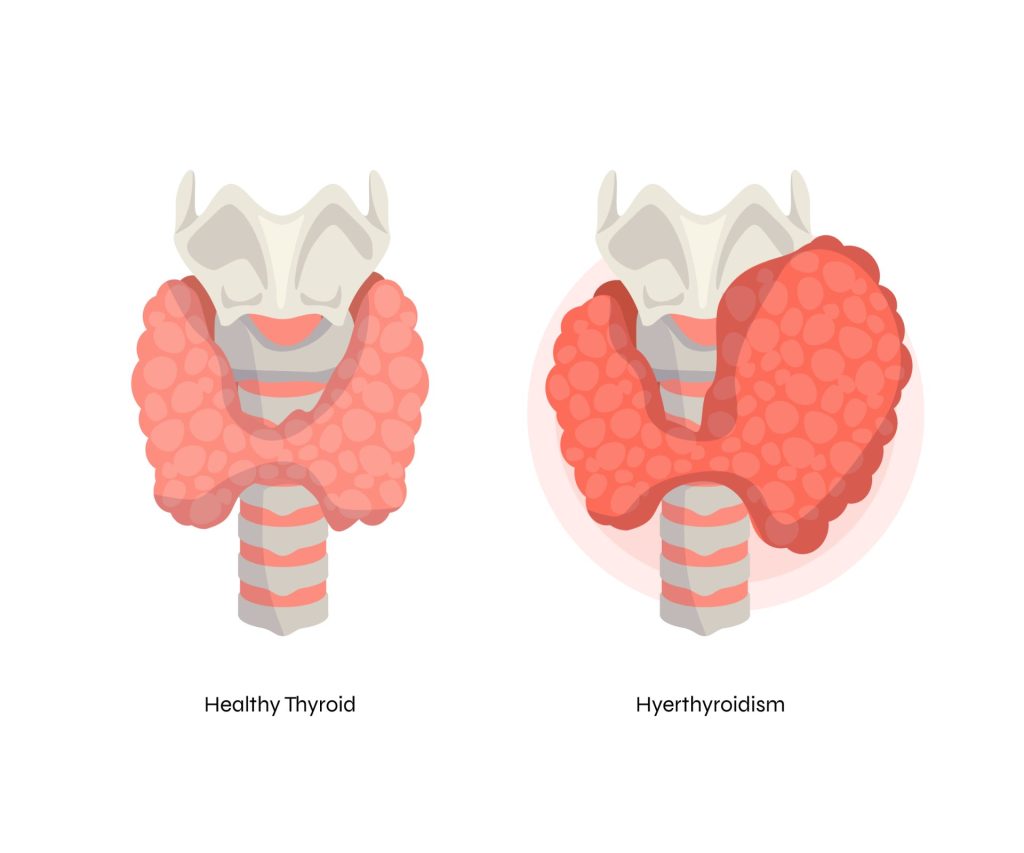The tonsils, which are two little lumps of lymphatic tissue situated on both sides of the upper part of the throat, ultimately are the site of tonsil cancer. Tonsil tumor is a kind of cancer of the head and neck.
Symptoms of tonsil cancer include sore throat, swollen tonsils, white patches and lumps, earache, changes in voice, trouble swallowing, as well as neck lump, and unexplained weight loss. The stage of the disease, where the size of the tumor, and whether cancerous cells have migrated to neighboring lymph nodes and other regions of the human anatomy. Furthermore, the patient’s general condition affects the prognosis for tonsil tumor. Early prognosis and therapy can lead to a positive outlook. However, the outlook may not be as good if the disease has spread to other bodily organs. Lastly, Treatment options include surgery, chemotherapy, radiation, and a combination thereof.
In this article, we will talk about what exactly tonsil cancer is. Furthermore, it is different from a tonsil cyst. The early and late signs of tonsil tumor, along with the treatment option, will also discuss how common this cancer is and, moreover, its prognosis.
What is Tonsil Cancer
When an abnormal growth of cells happens in the tonsil is known as tonsil cancer. A tonsil can develop cancer when cells grow abnormally. Your body’s immune system ultimately includes two oval-shaped pads at the back of your mouth called tonsils. However, it arises in the tissues surrounding the tonsils, two little lumps of lymphatic tissue at the bottom of the throat. Similarly, tonsil tumor is commonly categorized as head and neck cancer since it typically arises from tonsil surface cells.
However, If the cancer is not treated, it may spread to neighboring lymph nodes and additional body areas. Furthermore, swallowing issues and a feeling that something is stuck in your throat can both be brought on by tonsil cancer. Tonsil tumor is frequently discovered after it has spread to surrounding tissues, such as lymph nodes around the cervical region.
What is the leading cause of Tonsil Cancer?
Although the precise etiology of tonsil cancer is unknown, it is thought to result from hereditary and environmental factors. Ultimately, smoking, drinking alcohol, having an HPV infection, and having a weaker immune system are recognized risk factors causing tonsil tumor. There is evidence that HPV is a substantial risk factor for developing tonsil tumor. Despite this, some strains of the viral infection have a stronger correlation with the disease occurrence. Furthermore, radiation exposure, poor dental hygiene, and a family carrier with neck and head cancer are some additional risk factors underlying tonsil tumor.
Although some people might develop tonsil cancer despite these risk factors, not everyone who possesses these risk factors will.
What is the difference between Tonsil Cysts and Tonsil Cancer?
Two different disorders may impact the tonsils.
- Tonsil Cysts
- Tonsil Cancer
Tonsil Cyst

Tiny, fluid-filled sacs called tonsil cysts can form on the tonsils and are generally benign and non-cancerous. However, they usually don’t produce any symptoms, although if they get big or are infected, they could hurt or make you uncomfortable. Lastly, tonsil cysts can be surgically removed or managed by simply draining the fluid within the cyst.
Tonsil Cancer
Tonsil cancer, on the contrary hand, is a kind of cancer that arises in the dividing cells found in the tonsils. Furthermore, if neglected, it is a cancerous tumor that might spread to other body parts.
Note:
The critical distinction between tonsil cysts and tonsil cancer is that tonsil cysts are often benign and do not metastasize to other organs. However, tonsil tumor represents a malignant development that may occur in the throat region.
To completely rule away the danger of cancer, getting any unusual growths found in the tonsils examined by a specialist is crucial.
What are the Signs of Tonsil Cancer?
Tonsil cancer symptoms can vary, but they frequently include the following:
- A recurrent sore throat,
- Swallowing issues,
- Ear pain,
- Voice changes,
- Lumps or Patches of white tissue on the tonsils or inside of the throat,
- Neck lumps, as well as expanding,
- Unexplained loss of weight.
- The tonsils may swell, turn red, or become inflamed due to tonsil cancer.
- In addition to having terrible breath, some patients with tonsil cancer can cough up blood or have a tumor or mass in their mouth or neck.
Furthermore, the reason must be determined by a competent medical assessment because other illnesses may bring on similar symptoms.
However, you must visit a doctor for a diagnosis if you have any of these symptoms. Early identification and treatment regarding tonsil cancer increase the likelihood of a successful course of therapy and recovery.
Early Signs of Tonsil Tumor:
Tonsil cancer might present with subtle early signs that are simple to ignore.
- A Chronic Sore Throat
- Trouble Swallowing
- Earache
- Voice Changes
- Especially white patches of lumps located on the tonsils and in the throat
However, these can all be early indicators of tonsil cancer.
Remembering that other disorders can also bring on these early signs is crucial. However, you should consult a medical professional for a diagnosis if you encounter any of them. Furthermore, tonsil cancer might be treated more successfully and have a better prognosis if found early.
Therefore, regular medical visits and attention to any modifications in the throat or neck area are crucial for the early detection and management of tonsil tumor.
Later Signs of Tonsil Tumor:
The later signs of tonsil cancer include:
- A chronic sore throat,
- Trouble swallowing,
- Lumps or white patches located on the tonsils or within the throat
- Lump or swelling in the neck,
- And properly unexplained weight loss
These can all be indicators of tonsil cancer if it is not found and treated early.
Moreover, other symptoms, including
- Coughing up blood
- Breathing issues
- Excruciating pain in the ear or throat may appear as the disease worsens.
- Fatigue
- Weakness,
- Appetite loss
These are possible signs of tonsil cancer that have migrated to other body areas.
Lastly, it is crucial to remember that other disorders may additionally bring on these symptoms. Ultimately, if you encounter any of them, you should consult a doctor for a diagnosis.
What are the Symptoms of Tonsil Cancer?
Tonsil cancer symptoms can vary, but typical ones include the following:

- Bottom of a throat ache that won’t go away
- An enlarged tonsil on one side
- Saliva with blood
- Mouth ache
- Chewing, swallowing, or speaking challenges
- Persistent throat pain
- Intolerance to citrus-based meals and beverages
- Painful ear ache
- Lump or neck discomfort
- Swallowing discomfort, bad breath
A competent medical assessment must determine the reason to determine whether it is tonsil cancer. Therefore, similar symptoms may be brought on by other illnesses.
Ultimately, you must visit a doctor for a diagnosis if you have any of these symptoms. Lastly, early identification and treatment of tonsil tumor can increase the likelihood of successful therapy and recovery.
How Common is Tonsil Tumor?
Although it is not frequent, tonsil cancer has become more prevalent recently. Frequently, the American Cancer Society estimates that in 2021 there will be 17,780 new instances of the oral cavity in the United States, including tonsil tumor, and 4,070 deaths from these malignancies.
Therefore, only a tiny fraction of these instances involve tonsil cancer, which is becoming more common, particularly in younger persons. However, the precise reason for this rise is still being determined. Therefore, it is thought to be related to the rising incidence of human papillomavirus, or HPV, infection and, perhaps, recognized as a risk factor for developing tonsil tumor. Furthermore, it is crucial to remember that tonsil cancer may affect anybody, irrespective of age or sex. Therefore, early identification and treatment depend on regular medical visits, and attention for every change in the throat the neck region is essential.
Is Tonsil Cancer Treatable?
Yes, tonsil cancer may be treated, particularly if caught early.
Furthermore, tonsil tumor can be treated with
- Surgery
- Chemotherapy
- Radiation Treatment
- Probably even a combination of these.
Therefore, the appropriate course of therapy will depend on the stage and type of cancer and the patient’s general health and preferences. However, surgery may remove the malignant cells if found early. This might involve removing the afflicted tonsil or a section within the throat tissue. Therefore, to eradicate any leftover cancer cells and stop the disease from progressing, as well as radiation treatment plus chemotherapy may be employed.
Furthermore, a mix of therapies may be employed in some circumstances. Therefore, the stage of the disease, the individual’s age, and general health, as well as the efficacy of the treatment, all affect the future outlook for tonsil cancer.
However, early identification and therapy might increase the likelihood of effective treatment and recovery. Ultimately, to choose the best route of action for specific circumstances. However, it is crucial to consult a doctor about all available treatments and any possible adverse effects.
What is the Treatment for Tonsil Cancer?
The point in time and position of the cancerous tumor, the patient’spatient’s general health, including their preferences all affect the course of therapy for tonsil cancer. Chemotherapy, radiation therapy, surgery, plus a combination of each of these are all possible treatment options.
Surgery:
Surgery can be an option to remove the malignant cells in tonsil cancer in its early stages. Only the afflicted tonsil may need to be removed during surgery, or some throat tissue may need to be cut out. Additionally, chemotherapy or radiation therapy may be combined with surgery.
Radiation Treatment:
High-energy radiation is used in radiation treatment to kill cancer cells. However, it can be used alone or in conjunction with surgery with chemotherapy to treat tonsil tumor. Ultimately, it is possible to administer the radiation either internally by putting radioactive material within the body or externally by utilizing an instrument outside the body.
Chemotherapy:
Drugs are used in chemotherapy to destroy cancer cells. Perhaps, it can be used either alone or in conjunction with radiation treatment or surgery. However, chemotherapy can be administered intravenously or orally.
A Combination of These:
To get the most significant results, several treatment choices could be combined. Each patient’spatient’s specific demands may be considered while developing the treatment plan. Ultimately, to decide on the most appropriate course of therapy for a specific situation. Therefore, examining all possible treatment choices and side effects with a doctor is crucial.
Furthermore, scheduling routine follow-up appointments with a doctor is crucial to track the therapy’s success and catch any signs of cancer recurrence.
Click Here: If you also want to learn about Metastatic Breast Cancer.
What is the Prognosis of Tonsil Cancer?
- The prognosis, and the outlook, regarding tonsil cancer varies on several variables, such as the disease stage, the patient’s age, general health, and how well the therapy works.
- The prognosis related to tonsil tumor is often excellent if it is discovered early, before the disease has spread to neighboring lymph nodes and other regions of the body.
- However, under the American Cancer Society, the survival rate after five years for tonsil carcinoma in its early stages is around 83%.
- The prognosis of tonsil tumor is typically worse if the malignancy has traveled to neighboring tissues, lymph nodes, or other body regions.
- Furthermore, advanced tonsil tumor has a poorer five-year survival rate, at about 55%.
- However, It is essential to remember that each instance is unique, and these statistics are broad.
- Some patients with early-stage tonsil cancer may have a less aggressive illness.
- Therefore, others who have advanced tonsil tumor could respond well to therapy and have a better prognosis than anticipated.
- Lastly, scheduling routine follow-up appointments with a doctor is crucial to track the therapy’s success and catch any signs of cancer recurrence.
FAQs
How long does it take to recover from tonsil cancer?
Depending on the kind and stage of the disease as well as the chosen treatment approach. Perhaps, the recovery period following tonsil cancer therapy can be anywhere from a few weeks to months.
What can I expect if I have tonsil cancer?
You may anticipate a variety of diagnostic procedures and treatments, such as surgery, radiation therapy, and chemotherapy, along with routine check-ups with your doctor if you have tonsil cancer.
Does tonsil cancer spread quickly?
If identified and treated early enough, tonsil tumor may advance swiftly. However, a poorer prognosis may result in the spreading of the disease quickly. Furthermore, the disease spreads to neighboring lymph nodes, tissues, or other body organs. Ultimately, this might make treatment more challenging.
Is tonsil cancer fatal?
If it is not found and treated right away, tonsil cancer may prove deadly. However, many patients with tonsil tumor may be effectively treated with go on to enjoy healthy lives with early detection and appropriate therapy. Probably, the stage of the disease, the patient’s general health, and their reaction to therapy are some of the variables that affect the prognosis regarding tonsil tumor.
When should I see my healthcare provider?
If you encounter any recurring symptoms of the tonsils, especially your throat, including a sore throat that won’t go away, trouble swallowing, earache, and a lump inside your neck, you should consult your doctor. These signs and symptoms may indicate tonsil cancer or other illness needing medical treatment. Furthermore, if you’re experiencing any risk factors regarding tonsil tumor, for example, a history of smoking or frequent drinking, you should consult a doctor almost away.

Conclusion:
We talked about tonsil cancer throughout this article, including its reasons, symptoms, diagnosis, course of therapy, and prognosis. We also discussed when to consult a doctor if you experience symptoms associated with your tonsils or throat and the distinction between tonsil cysts versus tonsil malignancy. However, it is crucial to get medical assistance to increase one’sone’s chances of a favorable outcome and recovery. Furthermore, if you have any recurrent symptoms, including risk factors regarding tonsil tumor, consult the specialist as soon as possible. The early diagnosis and prognosis help in the treatment. However, the treatment may include surgery, chemotherapy, radiation therapy, or a combination. Tonsil cancer is treatable if it’s diagnosed early.

